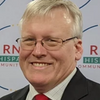463 Attend 3 WI Events; Election Stolen, Rigged or Fair?
- John Pudner, President, TBAF

- Feb 28, 2022
- 4 min read
Updated: Jan 18, 2023
Take Back Action Fund encourages you to follow our Facebook page to keep up with our grassroots outreach across Wisconsin, Missouri, South Carolina, Maine, the Deep South, and other areas. Saturday, we shared our flier and related comments in Northwest Wisconsin, with 463 Wisconsinites attending events in Eau Claire, Rice Lake, and New Richmond to hear officials and candidates for everything from local school boards to US Senate (Ron Johnson).
TBAF President John Pudner’s speech covered the training from his People Powered Playbook, first presented at Tim Draper’s Civic & Government Showcase. His theme was that new candidates become better-elected officials when they add personal notes onto literature to encourage feedback, take notes during conversations when going door-to-door, and follow-up in both. This gives them a better chance to win the vote of the person encountered and practice being more responsive to voters once in office.
John also stressed to the campaign volunteers in the room that they should be “surrogate listeners” more than “surrogate speakers,” learning what local issues are of most concern to voters. Surrogates taking the “speaker” approach often lead off with issues that are a more significant focus for politically-focused people but, more often than not, do not affect the day-to-day concerns of the average citizen. Only by listening will they learn the difference.
For instance, research shows that the top issues for two-thirds of people are directly relevant to their personal lives: what their children are being taught in schools, Covid and other health concerns, roads, and inflation. But more recently, about one-third of Americans agree that TBAF’s top priority - Election Integrity - is now most important: without fair and reliable election mechanisms, none of the other issues held important have a chance. John echoed a theme US Senator Ron Johnson (the former employer of TBAF Board member Camille Solberg) covered in his speeches in all three locations. That theme is that we cannot continue an election system that left almost half of Americans in 2016 not believing President Trump was elected. Most of the other half in 2020 do not believe President Biden was elected.
John told attendees that most Americans fell into one of three categories after the 2020 election:
Group 1 believes the election was stolen through tactics such as vote-flipping voting machines and floods of fraudulent ballots. The “scoreboard” was reversed. Most who have studied the 2020 Georgia US Senate race believe this theory cost Republicans the US Senate. A significant number of people who would have voted Republican did not vote because they thought the machines would flip their votes anyway.
Group 2 believes the election was fair, that there is very little evidence of cheating, and those who claim there was are simply conspiracy theorists and sore losers, blind to the fact that Republicans had sweeping victories in Congress the very same night that President Trump lost.
Group 3 believes the election was rigged, a claim John said is much more widely accepted than that the election was stolen. This view maintains that election officials did not change votes but that in many places, they took advantage of Covid to change the rules in a way that made cheating easier. This group points to irregularities like Wisconsin ballots being collected in parks, contrary to state law, and mass ballot mailings to uncleaned voter lists in Nevada, which would allow someone at an address to fill out multiple ballots for their candidate (since, unlike Utah, Nevada does not have state-of-the-art signature match equipment).
Those who fall into Group 3 that the election was rigged but not stolen also tend to fall into the two-thirds of Americans supporting Voter ID and strong signature match measures. They explain why no-excuse absentee ballots and same-day voter registration garnered less than 40 percent support even among residents in liberal New York in a statewide referendum in November. John believes Group 3 will also ultimately support the instant runoff/Final-Five proposal TBAF advocated for to preclude the electoral game-playing that puts “spoiler candidates” on the ballot.
Another election integrity initiative, hailed by John as “brilliant,” is legislation by Wisconsin Senator Rob Stafsholt to require the early counting of early votes with representatives of both parties so that Election Day does not drag on into “Election Days.” John noted that some conservatives criticized SB214 because they mistakenly thought it created more early voting. Still, it simply speeds up the counting of early votes, as we saw in Virginia this year (Fairfax County had to begin allowing early counting of early votes, with the result that Republican Glen Youngkin won the governorship on election night rather than making the people wait for days to see the impact of the early vote).
Photos from the three events posted on our Facebook include;
Facebook Post 1 - In Altoona (near Eau Claire), Pudner and State Rep. Jesse James speeches to a gathering of 107, including 23 candidates running for local offices.

Post 2 - Pudner joked with the staff of Senator Johnson (speaking in photo) that there was a “bigger” crowd in Rice Lake than in Altoona - by one. A total of 108 attended this second event of the day.

Post 3 - The final gathering of the day was the biggest Lincoln Day dinner in memory in New Richmond, with 248 people in attendance. The aforementioned Senator Rob Stafsholt was among the great speakers, and dozens more local candidates also attended this gathering.





Comentários